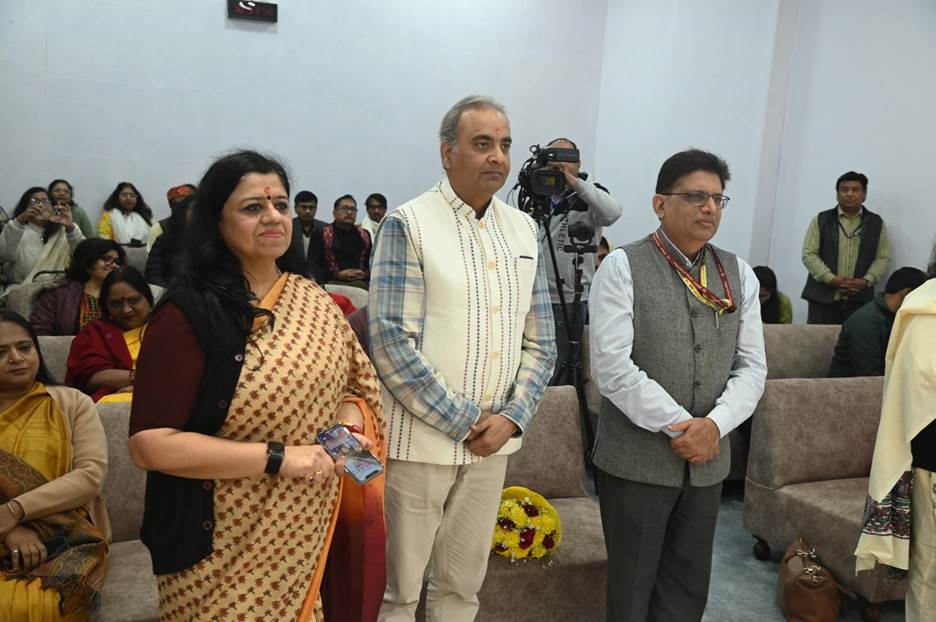In a significant ruling, the Supreme Court of India has directed that no fresh suits be filed and no effective orders or surveys be conducted against existing religious structures that are being contested for their religious character. This order applies to cases disputing the status of such places of worship.
 A Bench comprising Chief Justice of India (CJI) Sanjiv Khanna, Justices PV Sanjay Kumar, and KV Viswanathan emphasized that the Places of Worship (Special Provisions) Act, 1991, explicitly prohibits the initiation of such suits. The Court also noted that these proceedings cannot continue until the constitutional validity of the 1991 Act is decided. This was in line with the ruling in the Ayodhya case, which the Court reaffirmed today.
A Bench comprising Chief Justice of India (CJI) Sanjiv Khanna, Justices PV Sanjay Kumar, and KV Viswanathan emphasized that the Places of Worship (Special Provisions) Act, 1991, explicitly prohibits the initiation of such suits. The Court also noted that these proceedings cannot continue until the constitutional validity of the 1991 Act is decided. This was in line with the ruling in the Ayodhya case, which the Court reaffirmed today.
The Court highlighted that the matter is currently sub-judice and thus no new suits should be registered while the case is being heard. The Bench stated, “It is just and fair that no other court examines this issue while it is pending before us.” Additionally, it was directed that trial courts should refrain from passing any final orders in ongoing cases until the Court concludes its deliberations.
The 1991 Act, which protects the religious character of places of worship as they stood on August 15, 1947, has been challenged by several petitioners. The Court today also instructed the Central Government to file its counter-affidavit regarding the validity of the Act within the next four weeks, allowing the petitioners to respond afterward.
This ruling will impact at least 18 ongoing suits, many of which involve Hindu organizations and individuals seeking rights over Muslim mosques, claiming these mosques were built over ancient temples. Key disputes include the Shahi Jama Masjid in Sambhal, the Gyanvapi Mosque in Varanasi, the Shahi Eidgah Masjid in Mathura, and the Ajmer Dargah in Rajasthan. In these cases, Muslim parties have argued that the Places of Worship Act prevents such suits.
Background of the Dispute
The Places of Worship Act, introduced in 1991, was aimed at protecting the status quo of all religious structures in India as they existed on Independence Day in 1947. The Act bars any legal proceedings that challenge the religious character of these structures, except in the case of the Ram Janmabhoomi dispute in Ayodhya, which has been exempted.
The law, passed during the Ram Janmabhoomi movement, was designed to prevent further communal disputes over religious sites. The Supreme Court had earlier invoked the Act in the 2019 Ayodhya judgment, which awarded the disputed land to the Ram Lalla deity. The Court had clarified that the Act prohibits the re-opening of similar disputes for other sites.
In today’s hearing, Senior Advocate Raju Ramachandran, representing Jamiat Ulama-i-Hind, argued that proceedings in the 18 pending suits should be stayed, as surveys were being ordered in these cases. However, Solicitor General Tushar Mehta objected, questioning whether someone not party to the case could request a stay on all proceedings.
Justice Viswanathan responded by noting that since the Supreme Court has already laid down the law in the Ayodhya case, lower courts cannot act in contravention of it. Consequently, the Court issued a stay on all surveys and orders in the contested cases. The Court also appointed nodal counsels for various parties involved: Advocate Ejaz Maqbool for parties seeking enforcement of the Act, Advocate Kanu Agrawal for the Union of India, and Advocate Vishnu Jain for those challenging the law’s validity.
This ruling ensures that no further actions will be taken regarding these disputes until the Supreme Court resolves the constitutional challenges to the Places of Worship Act.



